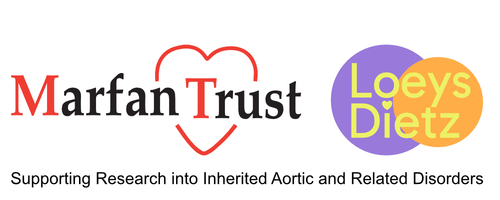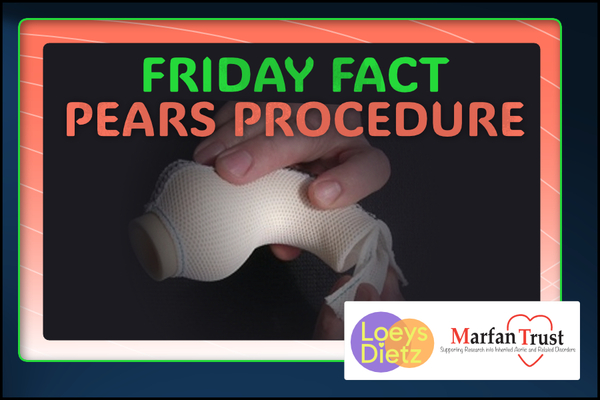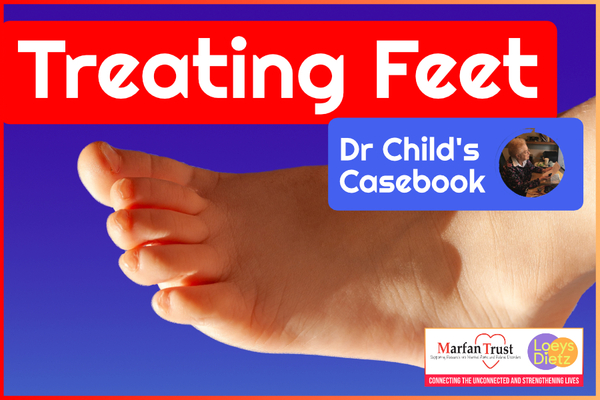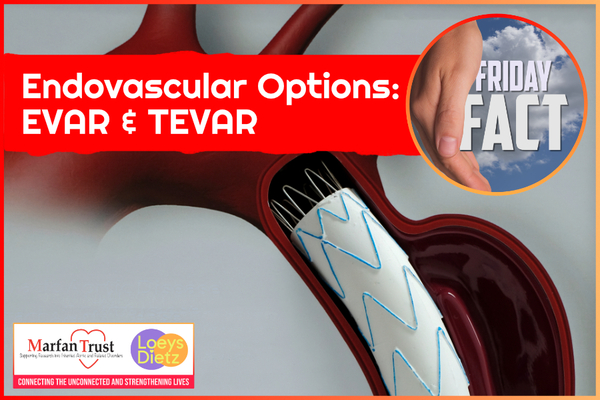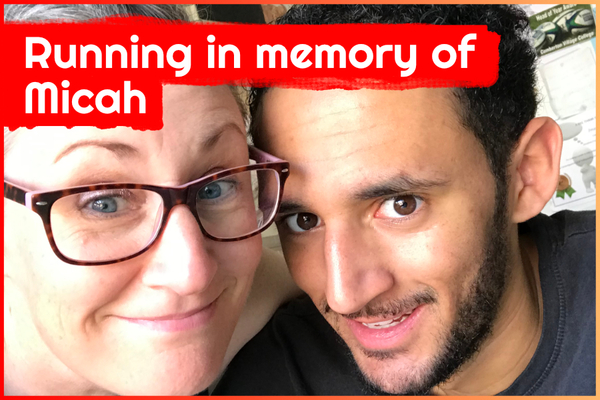Endlessly evolving, medicine is constantly improving and increasingly personalised. Emblematic of this is the PEARS procedure conceived by Tal Golesworthy. Unhappy with the existing surgical solution to his expanding aorta, Tal created an alternative, and became the first beneficiary of his elegant invention.
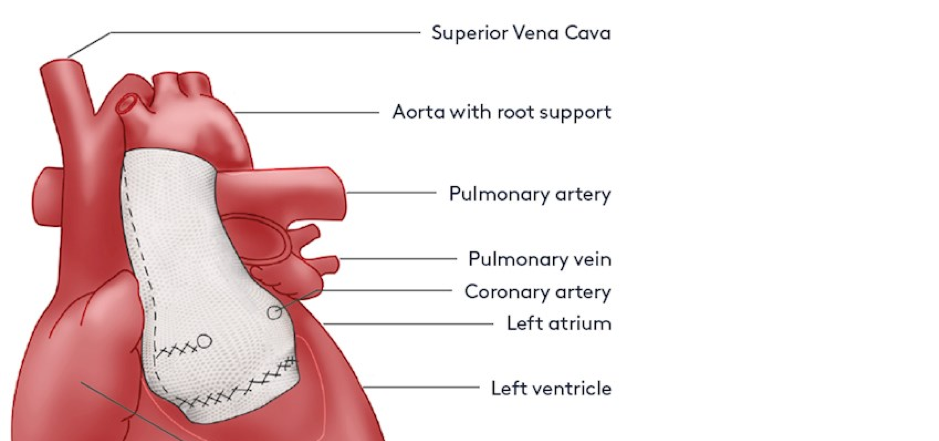
PEARS (Personalised External Aortic Root Support)
A surgical procedure using a bespoke mesh support that wraps around the dilated portion of the aorta to prevent further dilatation and dissection (usually the
aortic root and ascending aorta as shown in the image).
PEARS is an alternative to the traditional treatment for aortic dilatation which would be an aortic root/ascending aorta replacement with or without replacement of the aortic valve.
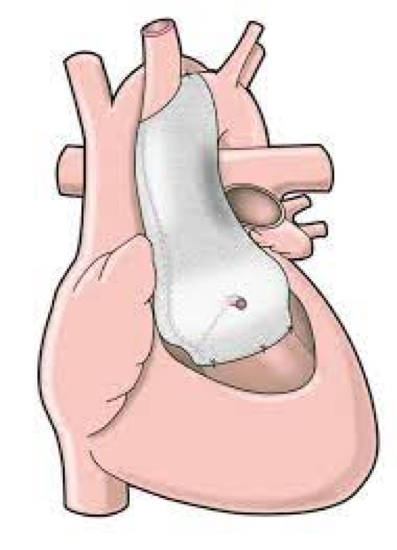
History
The first PEARS procedure took place in 2004 and much of the surgery has been in people with Marfan syndrome, 73.5% of the first 200 patients undergoing PEARS had MFS (Van Hoof et al, 2016).
Each patient having PEARS requires a specialist CT scan which is used to create the personalised 3D wrap for their aorta which is then placed during surgery.
Potential advantages:
· usually, the patient does not need to be put on cardiopulmonary bypass
· the operation time is shorter
· the native aortic valve remains in place which means no anticoagulation medication is needed for a mechanical valve replacement.
Important
· This is still a relatively new procedure which requires a specialist surgeon
· PEARS is not offered at all centres in the UK, but you can ask for a referral for a second opinion
· PEARS will not always be an option and your surgeon will be able to explain the reasons
More info:
Van Hoof L, Rega F, Golesworthy T, et al (2021) Personalised external aortic root support for elective treatment of aortic root dilation in 200 patients Heart,107:1790-1795.
National Institute for Health and Care Excellence (NICE) (2022) Personalised external aortic root support (PEARS) using mesh to prevent aortic root expansion and aortic dissection in people with Marfan syndrome. Accessed online: https://www.nice.org.uk/guidance/ipg724/chapter/1-Recommendations
